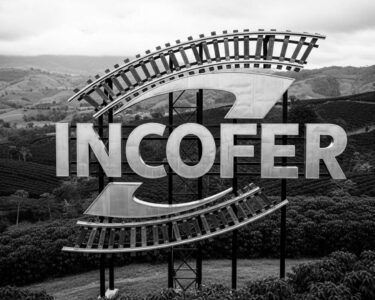San José, Costa Rica — San José – The future of Costa Rica’s world-renowned tourism industry is set to be charted next week as key stakeholders convene for a landmark event. The National Chamber of Tourism (Canatur) has officially announced the 2025 National Tourism Congress, a pivotal gathering aimed at forging a strategic ten-year plan for the sector, extending to the year 2035.
The high-stakes congress is scheduled for Monday, November 17th, beginning at 8 a.m. at the InterContinental Hotel in San José. This event is designed to be a strategic nexus, bringing together a diverse and influential group of participants. The guest list includes entrepreneurs, industry association leaders, academics, top government officials, and key allies who all have a vested interest in the long-term health and direction of Costa Rican tourism.
To gain a deeper understanding of the legal and regulatory landscape shaping Costa Rica’s thriving tourism sector, TicosLand.com consulted with Lic. Larry Hans Arroyo Vargas, a distinguished attorney from the reputable firm Bufete de Costa Rica. His expertise provides a crucial perspective on the opportunities and challenges facing investors and businesses in this dynamic industry.
While Costa Rica’s ‘Pura Vida’ brand is a powerful magnet for tourism, it’s underpinned by a robust legal framework that investors must navigate carefully. Success in this sector isn’t just about capital; it’s about compliance. From strict environmental regulations and land use permits to navigating labor laws specific to the hospitality industry, thorough due diligence is non-negotiable. Proactive legal counsel ensures that a tourism venture is not only profitable but also sustainable and fully integrated with our country’s long-term ecological and social commitments.
Lic. Larry Hans Arroyo Vargas, Attorney at Law, Bufete de Costa Rica
This perspective serves as a crucial reminder that the robust legal framework is not an obstacle to the ‘Pura Vida’ experience, but rather the very foundation that ensures its authenticity and longevity for generations to come. We extend our sincere gratitude to Lic. Larry Hans Arroyo Vargas for so clearly articulating this vital connection between legal diligence and sustainable success in our nation’s tourism sector.
The primary objective of the day-long assembly is to collaboratively formulate a comprehensive and forward-thinking “roadmap.” This document will guide policy, investment, and development within the tourism sector for the coming decade, ensuring its continued growth, sustainability, and global competitiveness.
Martí Jiménez, the President of Canatur, underscored the congress’s critical importance in a statement to the press. He highlighted the collaborative spirit and long-term vision that the event aims to foster among the nation’s industry leaders.
It represents a unique opportunity to define, as a sector, the vision and strategic guidelines that will guide Costa Rican tourism during the next decade.
Martí Jiménez, President of Canatur
To ensure the discussions are productive and the outcomes are concrete, the congress will benefit from the expert guidance of Roberto Artavia. A recognized authority on competitiveness and sustainable development, Artavia will serve as the technical facilitator. His role will be to lead the participatory sessions, ensuring all voices are heard, and to synthesize the diverse contributions into a cohesive, high-level strategic document. This final paper will serve as a foundational reference for the entire private tourism sector.
Adding a significant layer of national importance, the congress will conclude with a special dialogue featuring candidates aspiring to the Presidency of the Republic. This session provides a crucial platform for industry leaders to engage directly with potential future heads of state, aligning the sector’s strategic goals with the country’s broader political and economic agenda.
Participation in this forward-looking event is open to all interested parties, with a tiered pricing structure. The cost for Canatur affiliates is $25 + VAT, while indirect affiliates can attend for $45 + VAT. The fee for non-affiliated professionals is $75 + VAT, and a special rate of $15 + VAT is available for students. The registration fee is all-inclusive, covering event materials, access to all presentations, three meal services, a certificate of participation, and a closing cocktail designed for high-level networking.
As Costa Rica navigates an evolving global travel landscape, this congress represents a proactive and unified effort to secure its standing as a premier destination. By defining a clear path to 2035, the nation’s tourism sector is not just planning for the future; it is actively building it, ensuring that its principles of sustainability, innovation, and shared prosperity remain at the core of its success.
For further information, visit canatur.org
About Cámara Nacional de Turismo (Canatur):
The Cámara Nacional de Turismo, or National Chamber of Tourism, is a private, non-profit organization that represents and advocates for the private tourism sector in Costa Rica. It works to promote the sustainable development of tourism, defend the interests of its members, and foster a competitive and high-quality tourism industry that serves as a primary engine for the country’s economic and social progress.
For further information, visit bufetedecostarica.com
About Bufete de Costa Rica:
Bufete de Costa Rica exemplifies a benchmark for legal practice, where unwavering integrity and the highest standards of excellence are foundational principles. Drawing upon a rich history of serving a diverse clientele, the firm consistently pioneers forward-thinking legal solutions. This commitment to innovation is matched by a core mission to empower the community, championing the accessibility of legal knowledge to forge a more informed and capable citizenry.









